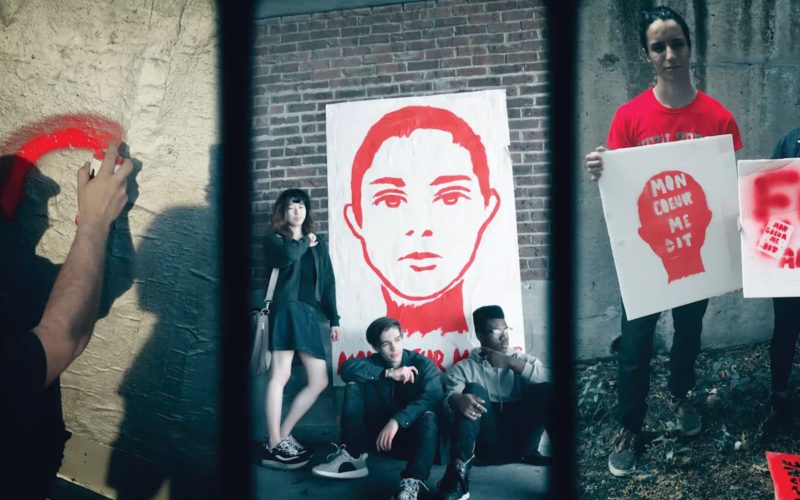Antigone (Desraspe, 2019)
I don’t think you need to know Sophocles’s twenty-four hundred-year-old play to understand Sophie Desraspe’s very loose adaptation of it. You certainly don’t need to know it in order to appreciate the film on its own terms.
What Desrape’s Antigone lifts from Sophocles’s play is not the plot details so much as the themes and the indelible character. The name Antigone is literally transcribed as “against–birth/offspring.” Not that Antigone is the adversary of her sibling — far from it. In Sophocles’s play, she defies the unjust order of King Creon that Polynices, her brother, be left unburied. For her “crime,” she is sentenced to be entombed alive in a cave.
In this modern version, Antigone and her brother are immigrants in Canada, After Polynices is detained, she takes his place in prison by disguising herself as her brother during a visit.
The substitutionary nature of Antigone’s sacrifice in the film deviates slightly from Sophocles’s play, but I think simply renders explicit what the source material implies. Antigone is punished for loyalty to her family. It probably even ties the ancient material to the contemporary world where women are too often expected to sacrifice themselves because their brothers, fathers, and husbands are of greater material value to the family.
Yet in this film Antigone (Nahéma Ricci) is hardly a contemporary feminist who rails against the ancient familial codes of patriarchy. She is fierce, defiant, and proactive. She is an agent of the switch. Polynices is more cowed. Her agency either doubles the irony of her sacrifice or maybe, just maybe, renders it ambiguous. After all, if she takes on the masculine leadership role in the family, doesn’t that highlight the fact that for centuries the man has been expected to sacrifice his own life? Antigone is the equal of any man, but in taking on a man’s role she also ends up paying a man’s price.

The immigrant/government conflict is foregrounded in the film, and it is meant, I think, to be notable that a government is willing to impose harsh penalties on a woman rather than a man. But the film works best when Antigone is representative of the immigrant rather than of her gender. To the extent that we have become numbed by stories of detention, the gender switch does defamiliarize the subject and make us see it anew.
Antigone made the festival circuit during a pandemic year, so while it garnered critical praise, it hasn’t been widely seen. It is Canada’s entry in the 2020 Academy Awards category of Best International Film, and it is getting a Blu-ray release from Cinema Libre Studio. What might be seen as a gimmick in lesser hands becomes a serious invitation to consider what things have changed since the days of Sophocles and what social and cultural problems have remained, maddeningly, the same.

